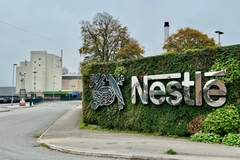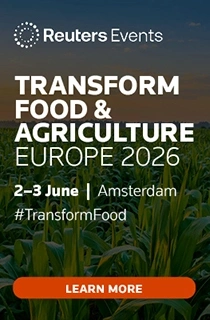
- Industry news
Industry news
- Category news
Category news
- Reports
- Key trends
- Multimedia
- Journal
- Events
- Suppliers
- Home
- Industry news
Industry news
- Category news
Category news
- Reports
- Key trends
- Multimedia
- Events
- Suppliers
Campina eyes potential strategy for after milk quotas

Wantenaar pointed out that, in principle, higher milk volumes will lead to lower milk prices. "The return on the last litre will be lower than the return on the litres that preceded it."
08/05/06 On 26 April 2006, Campina chairman Kees Wantenaar gave the Campina Members Council a first glimpse of Campina’s potential strategy if European milk quotas are scrapped after 31 March 2015. Campina will be developing this strategy in the coming months, so that the Board can open talks with the members on this issue in the autumn.

Speaking at Den Bosch in the Netherlands, Wantenaar mentioned that ‘Our task remains to add value to the milk supplied by our members in a sustainable way’. Apart from explaining to member farmers what they can continue to expect from their dairy co-operative Campina, he indicated that: "For some members, this will mainly be a question of the same volume at a high price, while others will primarily aim to increase production, in which case the price could perhaps also be somewhat lower."
Wantenaar noted that many dairy farmers have themselves said that they do not expect Campina to accept unlimited amounts of extra milk if the EU milk quotas are scrapped. "That is quite remarkable, in a positive sense. This debate is influenced by 20 years of quotas."
Wantenaar pointed out that, in principle, higher milk volumes will lead to lower milk prices. "The return on the last litre will be lower than the return on the litres that preceded it. In addition, you have to spread your income over a larger number of litres.”
However, Wantenaar anticipates that Campina member farmers will need to increase their milk output. "Some will need to do this more than others. But growth is an economic principle, at least in order to absorb the effects of price pressure and inflation – particularly since the last litres are not the ones with the highest production costs. Which is something that has to be taken into account, especially when many businesses have scope for limited growth in the herds and, therefore, in milk output. Some members will even have the scope and need for strong growth in their own businesses."
"It is in this force field that we at Campina will be setting our course. So the question is whether we can optimise value creation by managing supply." He expects a positive and meaningful discussion with the member farmers on this point in the autumn.
Campina believes that the European market and pricing policy, including intervention and support measures for milk fat and milk proteins, have primarily benefited the dairy farmers. As an instrument for limiting milk volumes within Europe, the quotas formed an integral part of this policy. "The quotas offered more advantages than disadvantages", Wantenaar said. "As the European market and pricing policy is being systematically phased out, the time is now approaching when quotas will have more disadvantages than advantages. The disadvantages will become more visible given the EU’s decision to increase its milk quotas for several years in succession."









